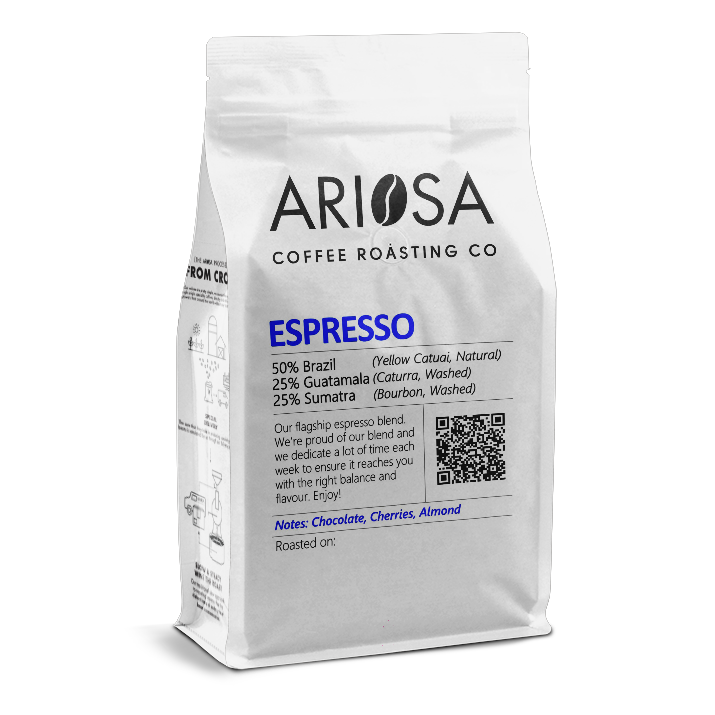Peru Eli Espinoza
Eli meticulously processes this exceptional, complex and rare coffee from his 4ha farm. His experience as a coffee picker and commitment to quality combine to make this a truly unique coffee.
Farm
Eli Espinoza
Preparation
Natural
Variety
Geisha
Country
Peru
Tasting notes
Sweet, mandarin, yellow fruits, red berries, orange blossom, honey, floral hints.
Eli Espinoza owns 4 hectares of coffee land spread across various parcels in the village of Las Pirias in Chirinos, Peru. His farms sit between 1,800 and 2,000 meters above sea level. Some parcels are planted with Typica coffee trees, others with Caturra and Bourbon varieties (only a small section has Geishas).
Eli processes all his coffee at his house, located at 1,800 masl. He came to the area as a young man looking for farm work and started out picking coffee in the village. Eventually he was able to purchase his own land and house, beginning to produce his own coffee.
For this lot, the coffee cherries were washed and floated before undergoing skin drying under shade for 24 hours. The cherries was then moved to a solar drying tent for 45 days of controlled drying.
Chirinos is a district in the San Ignacio province known for producing quality coffee in Peru, with good connectivity via new roads and a bustling town that serves as a hub for coffee trade. While producer co-ops promoting quality have a presence, many smaller farmers lack market access and support to invest in quality improvements. With altitudes above 1,700 masl and old Arabica varieties still in cultivation, there is potential for quality growth if these farmers can escape low market prices that barely cover production costs.
In Peru, many smallholder farmers struggle to produce specialty coffee or benefit from premiums, lacking basic training and infrastructure. To better incentives quality and ensure higher prices reach producers, we changed our sourcing model to work directly with farmers instead of through middlemen, setting up a warehouse in Jaen to buy parchment directly.
In the Cajamarca region, ideal conditions exist for quality coffee but deficiencies in harvesting, processing and drying lead to lost potential, especially for unaffiliated farmers (75% in northern Peru) without co-op membership. Local aggregators often pay these farmers too little too early, selling the coffee to multiple traders and ultimately exporters, obscuring traceability.
By buying direct, we can strengthen relationships with 400+ registered farmers across San Ignacio and Jaen, improving quality and getting higher premiums into producer hands.
Recommended Products

Ariosa Blend - currently featuring 2 pulped natural Brazils and a really nice Guatemala.

A perfect blend for your daily coffee. A smooth balanced coffee that hits just the right notes!






